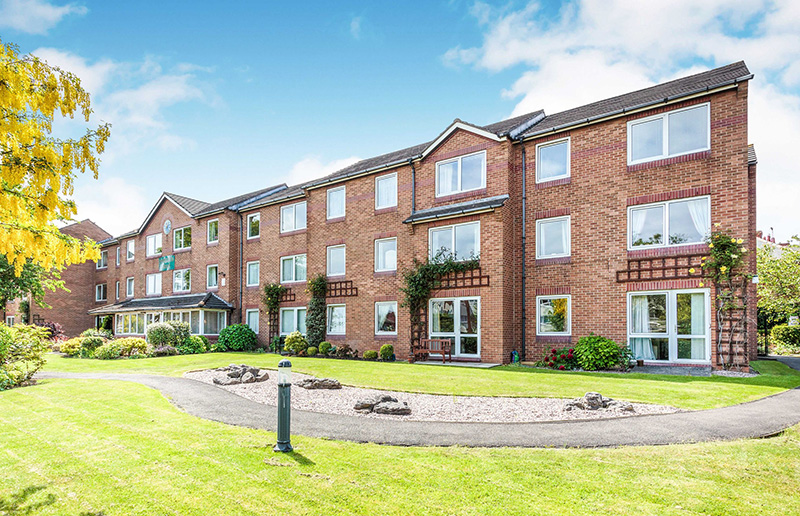Brandon Holloway - October 2022
Brandon Holloway - October 2022
For professional investors only. Capital at risk.
Private markets have an important role to play in the UK housing sector – which is woefully unaffordable for many – through investing in boosting the supply and range of accommodation available.
To tackle this difficult topic, however, investors must first get to grips with the nuances involved, particularly in relation to the role of government.
At Gresham House, we invest in affordable home ownership and independent retirement living housing, which are both well suited to external investment.
The homes are typically affordable to those on lower-to-middle incomes who do not rely on ongoing government support through the welfare system.
Investment companies in this sector contract directly with residents, which protects investor returns from exposure to intermediated leases with potentially cash-strapped organisations.
Furthermore, the absence of care requirements keeps the business model as simple as possible.
The government operates a grant-based system, whereby Registered Providers – including for-profit organisations – are given c.10% of the value of a property to help fund construction on the condition that they charge below-market rents.
Registered Providers, such as those managed by Gresham House, work together with the Regulator of Social Housing to increase the UK’s supply of affordable housing and make a truly beneficial impact.

Making it easier to own a home
In particular, we are looking to tackle the unattainability of home ownership.
Homeownership is proving out of reach for many Britons, and the average person is only able to afford to purchase the median-priced home in under 10% of the country (as divided by local authority district).
The shared ownership model of subsidised housing is quickly emerging as the dominant solution for affordable home ownership, replacing the Help to Buy programme, which is set to end in early 2023.
Under shared ownership schemes, lower- and middle-earning households are able to purchase a stake in a home – as little as 10%, with a deposit of just 1% – while paying below market rent on the remainder of the equity.
This means a 10% stake in the average UK property would require a deposit of £2,500 and a household income of c.£32,000, with monthly living cost payments coming to c.£750.
Participants are able to gradually increase their share through a process called ‘staircasing’.
Gresham House currently manages c.1,300 shared ownership homes (September 2022) and has plans to deliver an additional 5,000 by 2026.
Rental income streams
On top of all this, there is a dearth of affordable retirement housing in the UK, despite the country’s aging population.

Just 1% of elderly people live in retirement communities, and the majority of new developments are targeted towards high-income earners.
With the growing number of non-home-owning retirees, and many rethinking the prospect of maintaining and living in a property alone as they age, we believe the space is set to take off.
We have purchased more than 2,000 affordable rented independent living properties, which provide people with their own apartment as well as access to amenities and a peer group.
With monthly rents of about £700-800, inclusive of services, these are affordable to the average retiree.
The income collected from these properties is relatively safe and diversified, derived from pension annuities and savings – and we believe the market opportunity for this type of accommodation is enormous.
As we prioritise income streams from relatively affordable rents and residents with skin in the game, we believe our cash flows are significantly more secure than other forms of residential or commercial real estate. Throughout the COVID-19 pandemic, we achieved 99% rent collection.
At first glance, UK housing seems an attractive investment – benefiting from dependable rental income, while contributing to the social good of the country.
However, investors must be fully aware of the nuances associated with each accommodation segment before diving in.

Brandon Holloway, Deputy Fund Manager, Housing
Brandon joined Gresham House in November 2021. Prior to this, he worked at Singerman Real Estate, focusing primarily on seniors’ housing acquisitions and asset management and investor relations. Before this Brandon worked as a corporate finance analyst at Ventas, Inc., a market-listed healthcare REIT based in Chicago. Brandon has 11 years’ experience in real estate investing and corporate finance, and holds a BA in Economics from Williams College.
Important information
Opinions expressed within this article are the author’s own and not necessarily those of Gresham House. This does not, and should not be construed to, constitute investment advice. Past performance is not a reliable indicator of future performance. Your capital is at risk.
Housing investment is not for everyone. Please read more about the investment class and regarding the risks involved before considering investing.
 Gresham House
Specialist asset management
Gresham House
Specialist asset management




